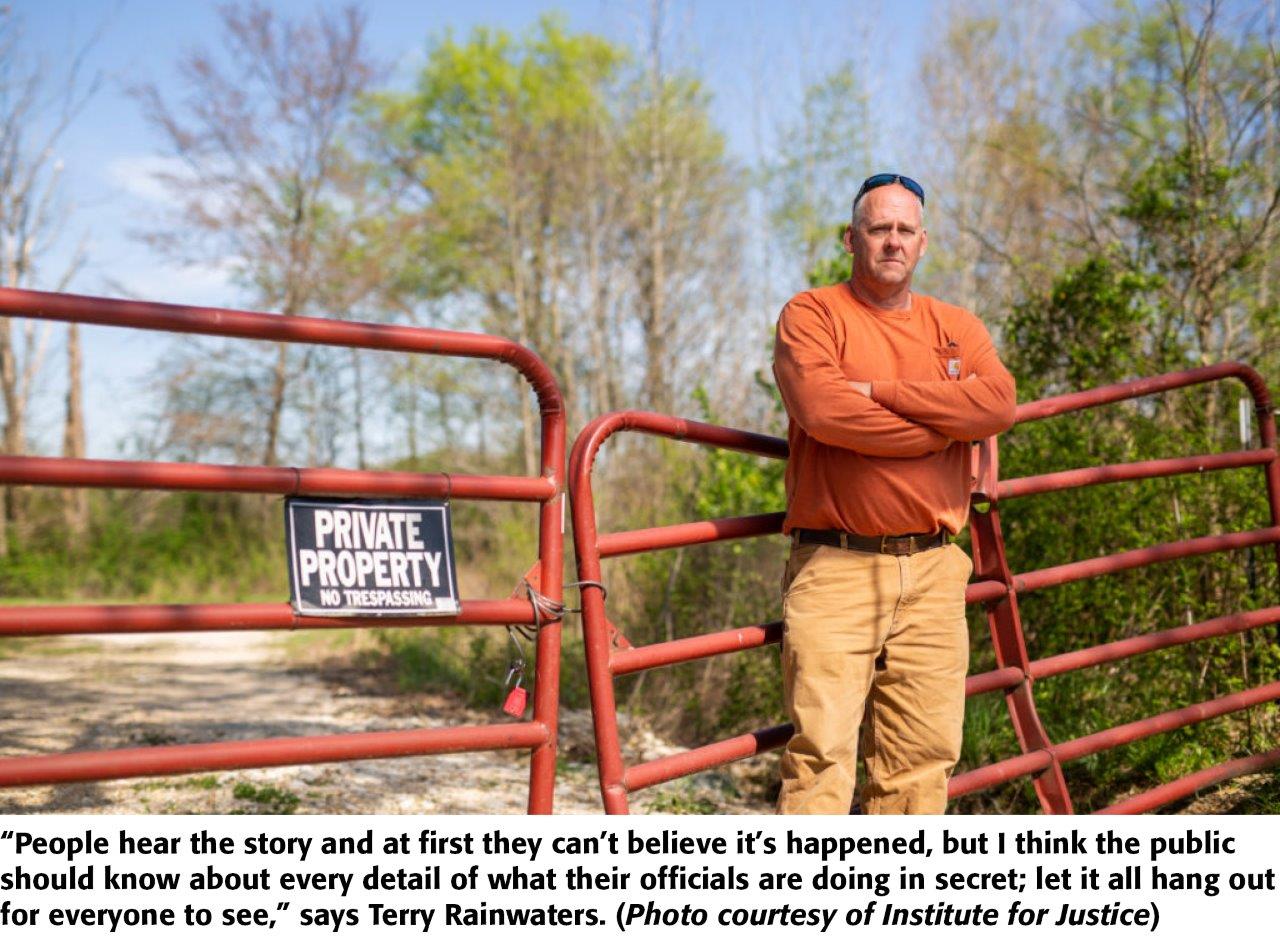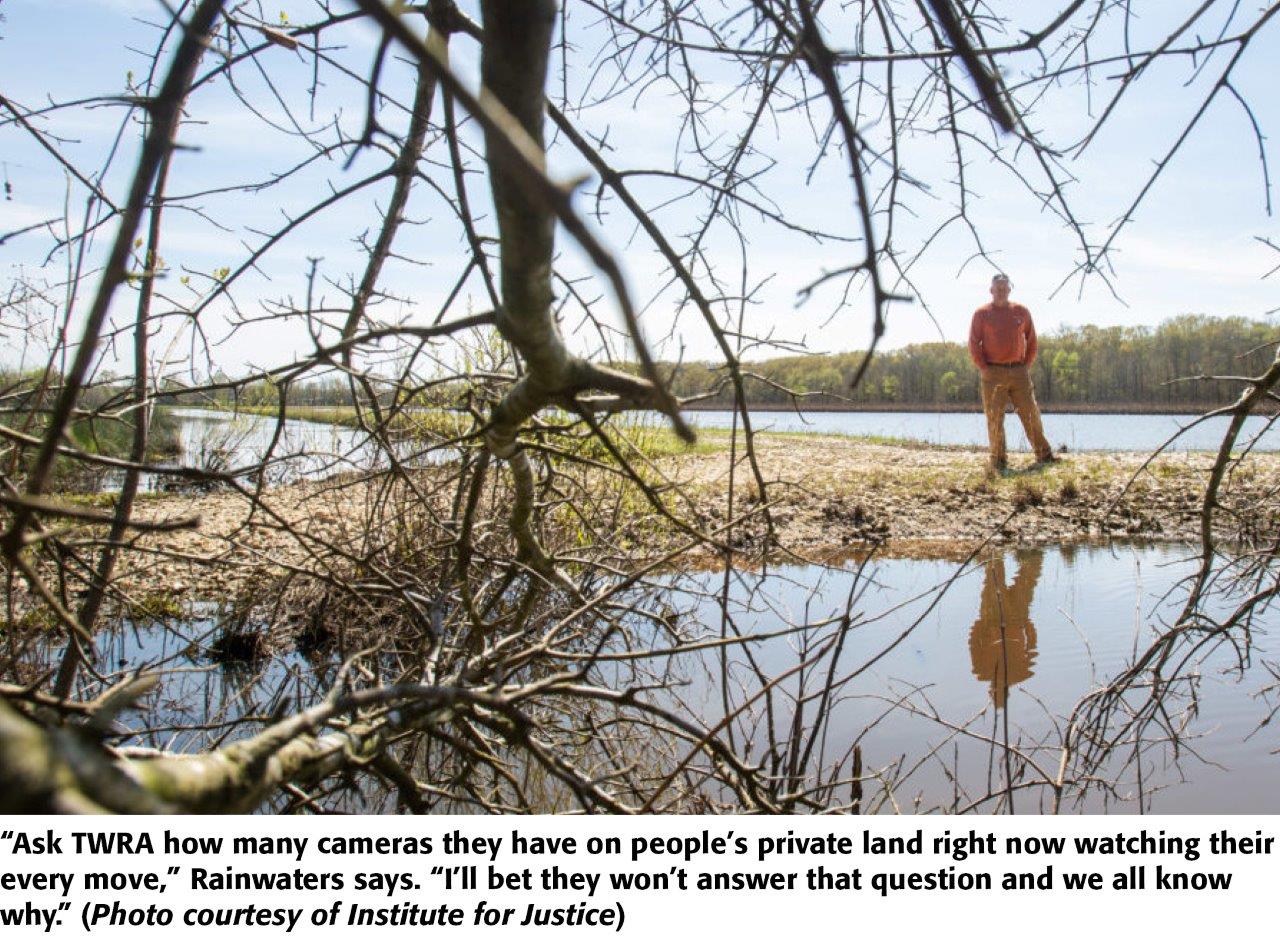Seated at his kitchen table, finishing off the remains of a Saturday breakfast, Hunter Hollingsworth’s world was rocked by footsteps on his front porch and pounding at the door, punctuated by an aggressive order: “Open up or we’ll kick the door down.”
Surrounded on all sides of his house, and the driveway blocked, Hollingsworth was the target of approximately 10 federal and state wildlife officials packing pistols, shotguns and rifles. And what was Hollingsworth’s crime? Drugs, armed robbery, assault, money laundering? Not quite.
Months prior, in 2018, the Tennessee landowner removed a game camera secretly strapped to a tree on his private land by wildlife officials in order to monitor his activity without apparent sanction or probable cause. Repeat: Hollingsworth’s residence was searched by U.S. government and state officials, dressed to the nines in assault gear, seeking to regain possession of a trail camera—the precise camera they had surreptitiously placed on his private acreage after sneaking onto his property at night, loading the camera with active SD and SIM cards, and zip-tying the device roughly 10’ high up a tree—all without a warrant.
Can the government place cameras and monitoring equipment on a private citizen’s land at will, or conduct surveillance and stakeouts on private land, without probable cause or a search warrant? Indeed, according to the U.S. Supreme Court’s (SCOTUS) interpretation of the Fourth Amendment. Welcome to Open Fields.
The vast majority of Americans assume law enforcement needs a warrant to carry out surveillance, but for roughly a century, SCOTUS has ruled that private land—is not private. Fourth Amendment protections against “unreasonable searches and seizures” expressed in the Bill of Rights only apply to an individual’s immediate dwelling area, according to SCOTUS.

However, SCOTUS’ Open Fields doctrine has been bucked in Mississippi, Montana, New York, Oregon and Vermont through protections granted by state constitutions, and for many American landowners, the more they discover about Open Fields—the more questions they have regarding the bounds of government power.
In Tennessee, Hollingsworth and Terry Rainwaters, another landowner who discovered multiple trail cameras on his property placed by the state, are taking their cases to state court, claiming violations of the Tennessee State Constitution. The Rainwaters and Hollingsworth stories contain alarming claims regarding the behavior of wildlife officials and raise a bevy of questions over Open Fields, states’ rights, and the sanctity of private property.
Legal Stalking?
On bottomland squeezed in the rolling hills of northwest Tennessee’s Benton County, a short walk from the banks of the Big Sandy River, Terry Rainwaters, 53, owns 136 acres of land containing two homes, farmland and an equipment shed. Rainwaters and his son, Hunter Rainwaters, 20, live in one of the homes; a tenant occupies the other. The acreage is the physical center of Rainwaters’ life—a small place to farm, hunt and reside—with one way in, one way out, and a gate that stays locked, backed by “no trespassing” and “posted” signs.
On his way to hunt on his father’s land during the first week of December 2017, Hunter Rainwaters was driving a side-by-side through the property when he noticed an oddity positioned roughly 4’ off the ground. He popped the brakes, backed toward the object and looked in surprise at a trail camera belted to a tree.
“I didn’t see any words or stickers on it, but I knew right away it wasn’t ours,” Hunter Rainwaters recalls. 
Following the hunt, he drove back onto the family property and spotted a second trail camera attached to a tree with several branches removed to allow for an unimpeded lens view. Rainwaters dialed his father’s cellphone, and described the two cameras: “I was shaken up when my son called and I knew immediately it had to be the TWRA (Tennessee Wildlife Resources Agency),” Rainwaters recalls.
Deeply disturbed, Rainwaters arrived home later in the afternoon and took a look at the two cameras, mulling over whether to remove the pair. Two days later, with Rainwaters in limbo on what action to take—both cameras disappeared.